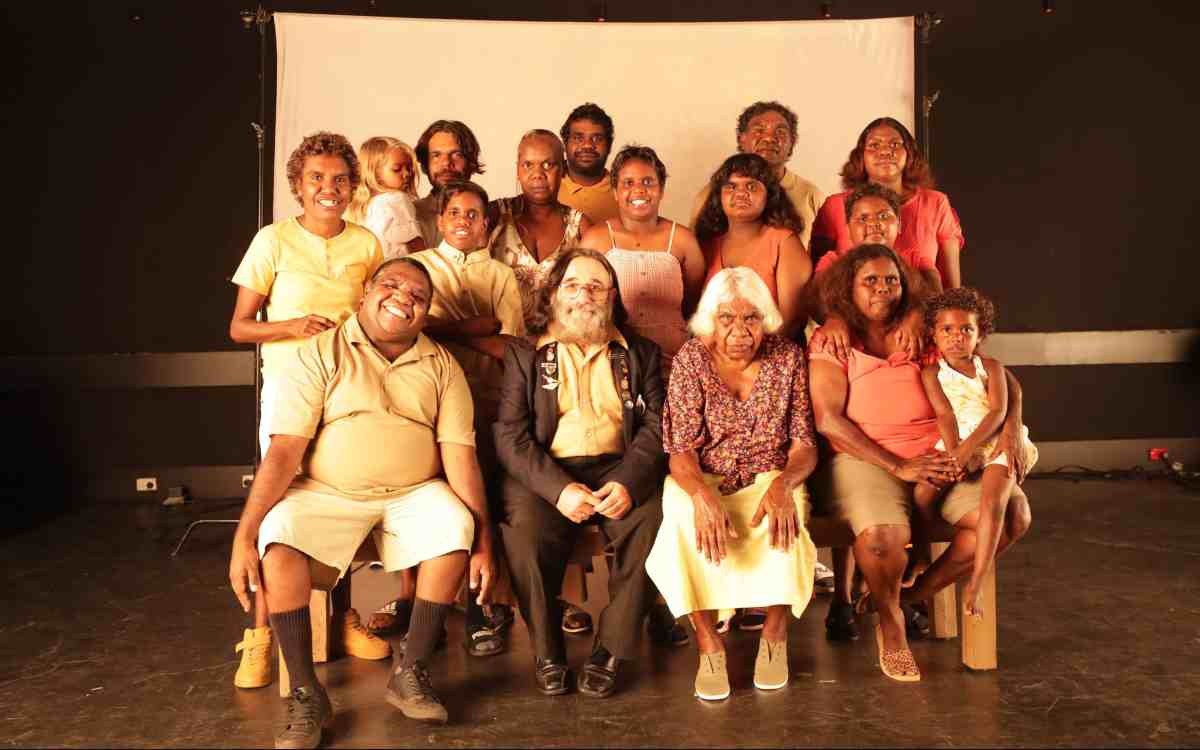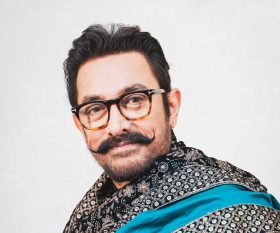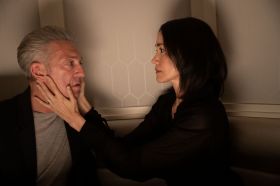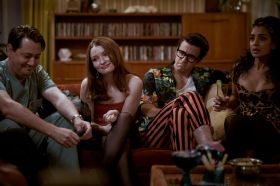Audrey Napanangka is a new Australian documentary by Mparntwe/Alice Springs-based filmmaker Penelope McDonald, co-written with McDonald’s son, Kaytetye man and cinematographer, Dylan River.
It follows Warlpiri woman Audrey Napanangka, her Sicilian partner of close to 40 years, Santo, and their extended families over a decade as they live and raise children in Mparntwe/ Alice Springs and return at times to Warlpiri country at Yuendumu and Puturlu (Mount Theo). It provides an expansive yet intimate portrait of a family as they navigate colonial systems and the complexity of living between two worlds.
Napanangka was born on Country. Her first language is Warlpiri and her framework for understanding the world is rooted in Warlpiri ways of being. Santo, an Italian immigrant, is also an outsider, searching for belonging away from his homeland.
As foster parents to over 30 Aboriginal children across several decades, including in one instance two generations of girls, Napanangka and Santo are at one level remarkable subjects and, at another, gripping yet entirely unremarkable.
Their lived experience is emblematic of a generation of desert families faced with trying to reconcile Aboriginal ways of being and doing with new cultural influences and an inflexible colonial state. The consequences are messy, sometimes tragic and most often tinged with humour.
Read: What to watch in July: new to streaming, cinemas and film festivals near you
The film finds a gentle pace while covering a lot of thematic ground and narrative events. Filmed over ten years, at times the camera work feels uneven. Understandably, camera quality changes as the years pass, as do the children’s hairstyles, complicating the piecing together of a simple narrative arc in the editing room.
Despite this, the film threads together well, the narrative bound in parts by music from David Bridie. Any unevenness is more than compensated for by the genuine intimacy captured on screen. The product of a 40-year friendship between McDonald and Napanangka, the documentary is a generous glimpse into Napanangka and Santo’s world.
Napanangka is at ease in front of the camera. As an actor, she had small roles in close to a dozen films, including Rabbit-Proof Fence (2002), Samson and Delilah (2009) and Robbie Hood (2019). This time playing herself, she is soft but steely.
Read: The New Boy review: an enchanting and intriguing film
Released within months of the intense media reporting around crime in Alice Springs, the documentary implicitly speaks to these issues while avoiding being didactic. Its strength is the ability of the narrative to deepen understanding of First Nations’ worldviews without trying to explain itself.
For some audiences, it would be a world that is almost utterly unfamiliar. It is the ordinariness of what is captured on screen that is most arresting and revealing – Santo using an old flour drum as a step stool to reach the top shelf of the cupboard to retrieve family documents and photographs, a lounge room floor cluttered with mattresses used as makeshift beds for visiting relatives and endless trips to the laundrette to wash blankets.
Tender and intimate, Audrey Napanangka is a far cry from the sensationalism of newspaper headlines and an enriching piece of Australian cinema.
Audrey Napanangka is in cinemas now.
This article is published under the Amplify Collective, an initiative supported by The Walkley Foundation and made possible through funding from the Meta Australian News Fund.
Actors:
Director:
Format: Movie
Country:
Release:





